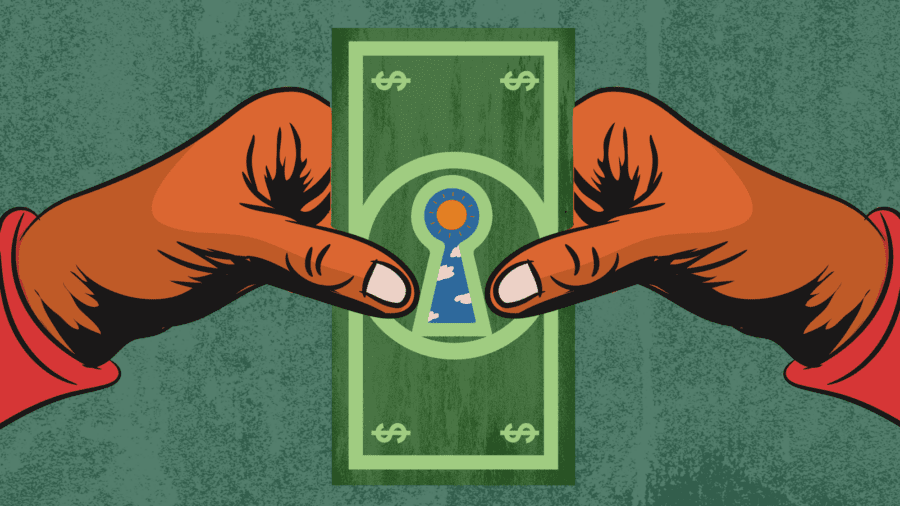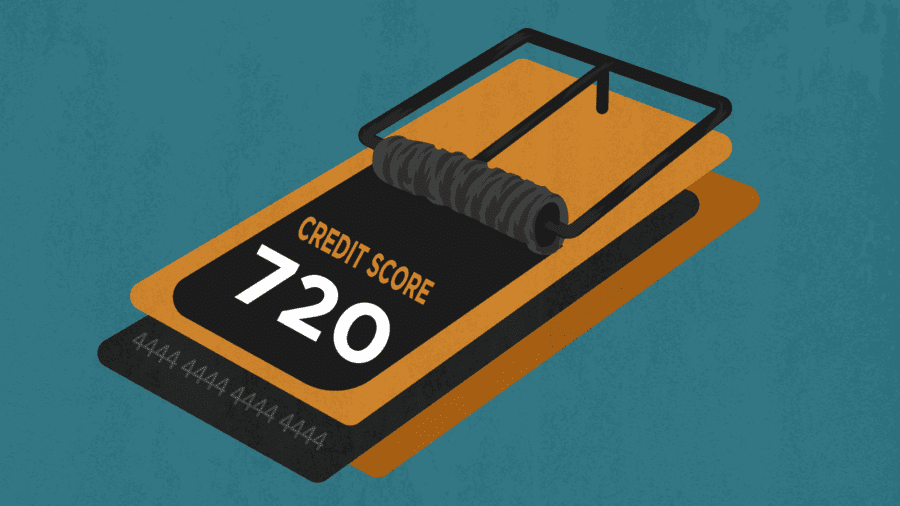
Before You Retire, Ask Yourself These 7 Financial Questions to Make Sure You’re in the Clear
Are you prepared to live comfortably in retirement?
Whether you enjoy your career or are counting the days to retirement, it’s critical that you stay on top of your retirement planning.
Although there are government programs designed to assist retirees, including Social Security and Medicare, these programs are not designed to replace your working income entirely. According to the AARP, Social Security should only replace around 40% of your working income, but, unfortunately, one in three Americans over 65 rely on Social Security for 75% of their income.
You need to make sure you’re ready for retirement so that you can live out the rest of your life without overwhelming financial stress. Here are some critical financial questions you should ask yourself to ensure you’re prepared for a smooth transition into retirement.
#1. What Are My Retirement Goals?
What does your ideal retirement look like? Does it involve spending a great deal of time with grandkids or traveling the world with your spouse? Maybe it involves taking on a creative hobby or working part-time to stay mentally sharp.
Retirement means different things for different people, and it’s important to consider what kind of retirement you want to enjoy. Before we get into the details regarding your financial planning, it’s helpful to evaluate your top goals for retirement.
For example, maybe you’ve never been to South America, and you’d like to spend a few months or even years traveling around the beautiful continent. You can write down that goal and eventually plan your finances to make it a reality.
The more specific you are, the easier it will be to plan these dream activities. Rather than merely writing, “Go to South America,” you can write down the amount of time you want to spend, the different countries you’d like to visit, and what activities you would like to do while abroad.
Maybe some of your dream retirement activities don’t require money at all. Have you ever wanted to write a book or learn an instrument but always felt too busy? Retirement is a great time to acquire new hobbies and skills that will keep you engaged and bring more joy into your life.
During this phase of planning, it’s also critical to be realistic. You may need to adjust your goals based on the amount you’ve been able to save toward retirement as well as any passive income you may continue receiving in your post-career life.
Join In 200 Million+ On The Journey to Greatness
#2. Am I Saving Enough?
When evaluating whether or not you’re ready for retirement, it’s crucial to create a retirement budget to get a clear picture of your financial situation. This will also help you determine if you’re saving enough toward retirement.
A retirement budget functions similarly to a standard budget, but you budget out for your first year of retirement. You list your estimated monthly expenses and any debts you need to continue paying off, and then you can calculate the total amount you’ll need to withdraw from your retirement accounts. Plus, you should consider any passive income you may have and other sources of retirement income including a pension or Social Security.
Many of those preparing for retirement ask the question, “What is a good monthly retirement income?” and the answer will differ from person to person. As a general rule, you want to aim for around 80% of your working income in order to maintain your current lifestyle.
For example, if you make $6,000 a month, you would want a monthly retirement income of $4,800, which you would obtain through your passive income, Social Security, and withdrawals from your retirement accounts.
One important note is that this 80% rule does not account for any extra expenses you may have if you plan on traveling or engaging in another exciting retirement activity. Additionally, you should be financially prepared for unexpected expenses such as major home repairs and medical expenses.
After calculating the amount you’ll need to withdraw from your retirement account in your first year, you can calculate how many years of retirement you have saved. This phase of planning is a great time to consider whether you’re putting aside enough money toward retirement. If you find that you are not saving enough money each month, it’s time to create or revisit your budget to allocate more toward retirement. An airtight budget will help you cut out any unnecessary spending and get a better handle on your financial situation.
You may also want to consider obtaining a part-time job or side hustle to save more toward retirement. Additionally, you can downsize your living situation to save money on rent, or, if you own a home, you can sell it, move into a less expensive house, and distribute your profit into your retirement accounts.
#3. What Assets and Investments Do I Have?
When working through your retirement budget, you’ll gain a clear picture of how much money you make and what’s in your existing savings, but you also need to consider your assets and investments that may come in handy during your retirement.
For example, if you’re an antique car enthusiast and have a slew of classic cars, these can come in handy and provide you with a great deal of money to fund your retirement. You may also have valuable assets such as jewelry, musical instruments, and artwork.
Your investments will also play a critical role in your retirement. One important note is that as you age and your income becomes more fixed, you become less risk tolerant when it comes to market volatility, meaning you should invest in less risky securities and funds. You should also diversify your investment portfolio to further mitigate risks.
Every investment decision comes with a degree of risk, but you can put your money in safe funds such as exchange-traded funds, index funds, and mutual funds. You can also continue to save money in investment-based retirement accounts such as IRAs and 401(k)s.
Rather than allowing your money to lose purchasing power within a standard savings account, you may want to consider investing in or putting more money in a tax-advantaged retirement account like a Roth IRA. With a Roth IRA, you can contribute up to $6,500 yearly or $7,500 if you’re over 50. The money you contribute to the account is taxed beforehand, so it grows tax-free, and you won’t need to pay taxes when you withdraw the funds in retirement.
#4. Does My Investment Portfolio Suit My Retirement?
As you approach retirement, you’ll need to adjust your investment portfolio to serve as part of your income. Additionally, you’ll need to manage the remaining funds conservatively so that it lasts throughout your remaining years. Consider planning for your existing investments to last you around 30 years.
It’s crucial that you don’t outlive your savings and investments after retiring, so you need to consider the rate at which you withdraw money from your portfolio. For example, if you withdraw 10% of the money you have invested yearly, that will only last you a decade.
Another key component of managing your investment portfolio during retirement is positioning your assets in a way that prevents you from needing to sell them in a down market. Let’s say that you have 20 shares of Apple stocks as you enter retirement. You’ll likely eventually sell your stocks for retirement income, but you don’t want to be in the position in which you’re selling them when Apple’s stock prices are low.
For that reason, it’s important to have a diverse portfolio, and you may want to consult with a financial planner who can help you ensure that your investments are ready for retirement.
#5. Am I Informed About Medicare?
Medicare will likely play an important role in your retirement, so you need to learn as much as you can about this complex program before your retirement day comes.
Medicare is for those 65 and older who don’t have health insurance through their employers. There are gaps in medicare, so it will likely not cover all of your medical needs, and not every medical provider accepts Medicare. You’ll need to take an in-depth look at what Medicare does and doesn’t cover, and you’ll also need to investigate what premiums you should expect to pay.
If you’re eligible for Social Security benefits, you’ll automatically be enrolled for Medicare Part A and Medicare Part B when you turn 65. Parts A and B cover hospital visits, nursing facilities, hospices, in-home care, doctor’s visits, preventative screenings, and more. You can learn the full detailed list of coverage on Medicare.gov. Click here to learn more about Medicare Part A and here for Medicare Part B.
Medicare Part C is also known as Medicare Advantage. Private insurers provide these plans rather than the federal government. Part C’s benefits sometimes include vision, hearing care, and dental, but this will vary depending on the plan and the insurer.
Finally, Medicare Part D offers coverage for prescription drugs and is offered by the federal government, but those wishing to obtain this insurance will need to enroll themselves.
Medicare Part A is free if the insured person paid Medicare taxes for ten years, but you’ll need to pay premiums on the other parts.
#6. How Much Will I Receive in Social Security Benefits?
The amount that you can expect to receive from Social Security benefits will depend on when you choose to start claiming your benefits. The minimum age for receiving the benefits is 62, but the longer you wait, the more substantial your monthly Social Security income will be. That said, your monthly benefits will only increase until you reach the age of 70.
The Social Security Administration (SSA) calculates the monthly check you’ll receive based on your average income. Rather than averaging every year you worked, the SSA will average the 35 years in which you made the most money and adjust the average for inflation. Next, the SSA multiplies that average by 35. They will then divide that number by 420, the number of months you worked over 35 years. The calculated number is your average indexed monthly earnings.
For example, if you made an average of $40,000 in your top 35 earning years, the SSA would multiply $40,000 by 35 ($1,400,00) and divide it by 420 ($3,333.34) to calculate your average indexed monthly earnings.
After finding the average indexed monthly earnings, the SSA then makes further calculations based on certain bend points in your income. You receive 90% of the first $1,115 of your average indexed monthly earnings. You then receive 32% of the income between $1,115 and $6,721, and you’ll receive 15% of the money after $6,721.
This may sound confusing, but let’s break it down for a moment. Let’s say you have an average indexed monthly earnings of $7,000. You’ll receive 90% of the first $1,115 of that $7,000, meaning $1,003.50. Next, you’ll receive 32% of the money between $1,115 and $6,721. The difference between those two numbers is $5,606, so you’ll receive 32% of that difference, which comes out to $1,793.92. Finally, you’ll receive 15% of everything over $6,721. In this example, the remaining money left in the average indexed monthly earnings is $279 ($7,000 – $6,721), and you would receive 15% of that final $279, which comes out to $41.85. So now, let’s total those numbers together to estimate the monthly check: $1,0003.50 + $1,793.92 + $41.85 comes out to $2,839.27.
Calculating your Social Security benefits can become complicated fast, but fortunately, both the Social Security Administration and AARP offer helpful retirement calculators to assist you in estimating the amount you can expect to receive. Plus, other factors will impact your Social Security benefits such as the year you were born and whether you’ve reached full retirement age, so it’s best to use a detailed retirement calculator.
#7. Should I Work During Retirement?
Finally, you should consider whether or not to continue working during retirement. It’s becoming increasingly common for those over age 65 to continue working because many don’t have enough money to retire comfortably. Plus, people live far longer than they used to thanks to medical advancements.
Just because you need to work doesn’t mean you can’t enjoy retirement, though — you can work part-time or can turn your interests and skills into money-making endeavors. Perhaps you’re a skilled pianist who can teach, or you can tutor in particular school subjects.
One critical note is that earning over a certain amount of money can negatively impact the amount you receive in Social Security benefits if you’re under full retirement age.
Your full retirement age will depend on the year you were born. If you were born in 1960 or later, your full retirement age will be 67, but you can still begin to receive Social Security benefits at 62.
If you haven’t yet reached full retirement age but have gone ahead and begun to receive benefits, the Social Security Administration can reduce your Social Security Benefits based on your income. They’ll deduct $1 for every $2 you make once you surpass the SSA’s annual limit of $21,240.
Once you reach full retirement age, the SSA will not deduct your benefits based on your income.
Learn More About Getting Ready for Retirement
Preparing for retirement can be daunting, but it’s crucial that you get started as soon as possible to plan for your financial future. If you need assistance starting or continuing your journey to ensure you’re financially set during retirement, consider working with a retirement financial advisor.
If you’d like to learn more about getting ready for your retirement, we recommend using additional helpful resources online including retirement resources on AARP’s website and SSA.gov. Plus, you can use the Social Security Administration’s helpful retirement checklist.
In addition to learning more about preparing for retirement, you can discover even more financial insights on Greatness.com.
Cheers to an abundant and fulfilling retirement!
Greatness Authors
Greatness Authors is a collection of writers, thinkers, curiosity experts, and students of the world who are committed to bringing you the most up-to-date, impactful, and inspiring information surrounding Greatness topics.

The *New* Way to Market Your Business on YouTube & Best Practices for Higher Engagement

The Power of Masterminds to Grow Your Business and How to Find One Near You

4 Inspirational Stories That Prove Money Isn’t the Key to Happiness

A Beginner’s Guide to Building a Great Credit Score While Avoiding Debt and Common Credit Mistakes

11 Eye-Opening Questions to Ask Yourself If You Struggle with Limiting Beliefs About Money










